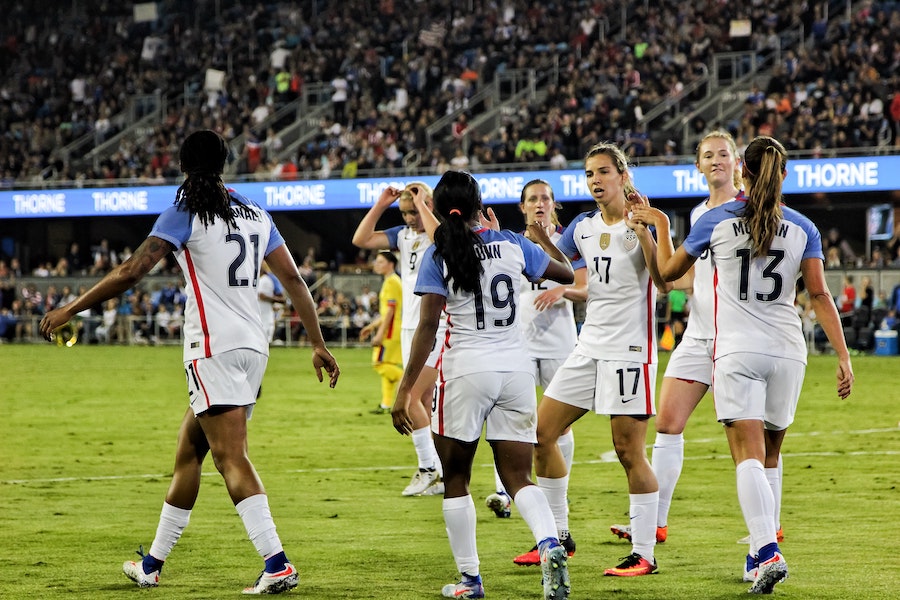
Study Finds Misogyny Towards Women’s Sport
January 21, 2022
A study released by Durham University (DU) in England has found that while attitudes are changing, hostile and sexist attitudes towards women’s sport are rife among male football fans, regardless of their age. The research was based on a survey of 1,950 male football supporters in the UK and was led by Dr. Stacey Pope from the Department of Sport and Exercise Sciences at the university.
The findings come in the context of a 'new age' of rising UK media coverage of women’s sports in recent years. According to Women’s Sport Trust, the 2021 broadcast audience for women’s sport in the UK reached 51.1 million, a significant increase from 2020's 27.3 million.
Researchers split the perspectives into three groups: progressive masculinity, overt misogynistic masculinity and covert misogynistic masculinity. Men with progressive attitudes showed strong support for equality in media coverage for women’s sport with many saying that the 2015 FIFA Women’s World Cup had been a positive turning point in the representation of women’s sport.
The findings suggest that the misogynistic attitudes are a result of a backlash against advances in gender equality. Two-thirds of respondents harbored hostile and misogynistic views, with “numerous examples of men from across all generations exhibiting highly sexist and misogynistic attitudes," said Pope.
The fans who held openly misogynistic attitudes saw women's sport as inferior to men’s, particularly when it came to football. Some respondents suggested that women should not participate in sport at all, or if they did, it should be ‘feminine’ sports, such as athletics. There was also extreme hostility against increasing media coverage of women’s sport, which was seen as ‘positive discrimination’ or ‘PC nonsense’.
The final group of fans, who were in the minority, expressed progressive attitudes in public, however, in more private moments it was revealed that they too had misogynistic views of women’s sport, which was dependent on who they were socializing with.

Increased exposure to women’s sport, however, can change attitudes for the better, inspire girls at grassroot levels and challenge assumptions around women’s capabilities. The media is seen as a platform to create change and in turn, it has the responsibility and ability to promote women’s sport more.
Tammy Parlour, CEO and Co-Founder of the Women’s Sport Trust, commented on the findings: “We’ve always known the positive impact global events like the Olympics, Paralympics and Wimbledon have on gender parity of both coverage and viewership.
“However, it is great to see the change that’s happening as other women’s sporting events start to gain traction. This trend now needs to become a habit, so they keep coming back on a regular basis and build greater emotional connections with the leading female teams and athletes.
Developments and major events include the success of GB women athletes at the 2012 London Olympic Games, the 2015 FIFA Women’s World Cup, the launch of the professional FA Women’s Super League and Sport England’s This Girl Can campaign.
As stated in the research article's introduction:
"The significance of this article lies in its focus on how men are responding to the increased visibility of women’s sport, a development that threatens to diminish this long-lasting ‘male preserve’ (Pitti, 2019). Although research on sports fandom has predominantly focused upon men fans (Pope, 2017; Toffoletti, 2017), very little work has explored men’s attitudes towards women in sport. Here we offer the first large-scale empirical study to focus on UK men football fans’ attitudes towards women’s sport.
Our findings offer new insights by developing an empirically driven three-fold theoretical model of men football fans’ performances of masculinities. Although we draw on one arena (sport), we argue that this provides an excellent prism to examine wider sociological issues. For example, the theoretical model we develop has potential to examine gender inequalities in other areas of society, such as in the workplace or in university settings."